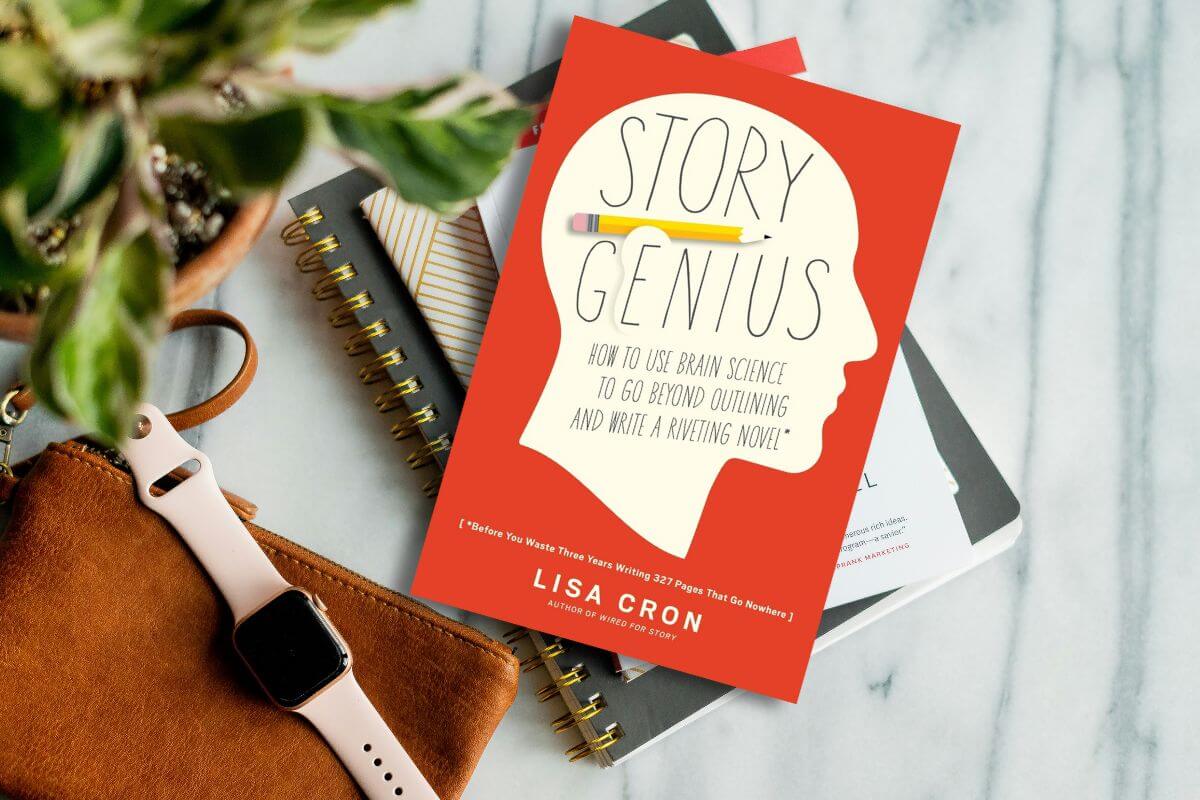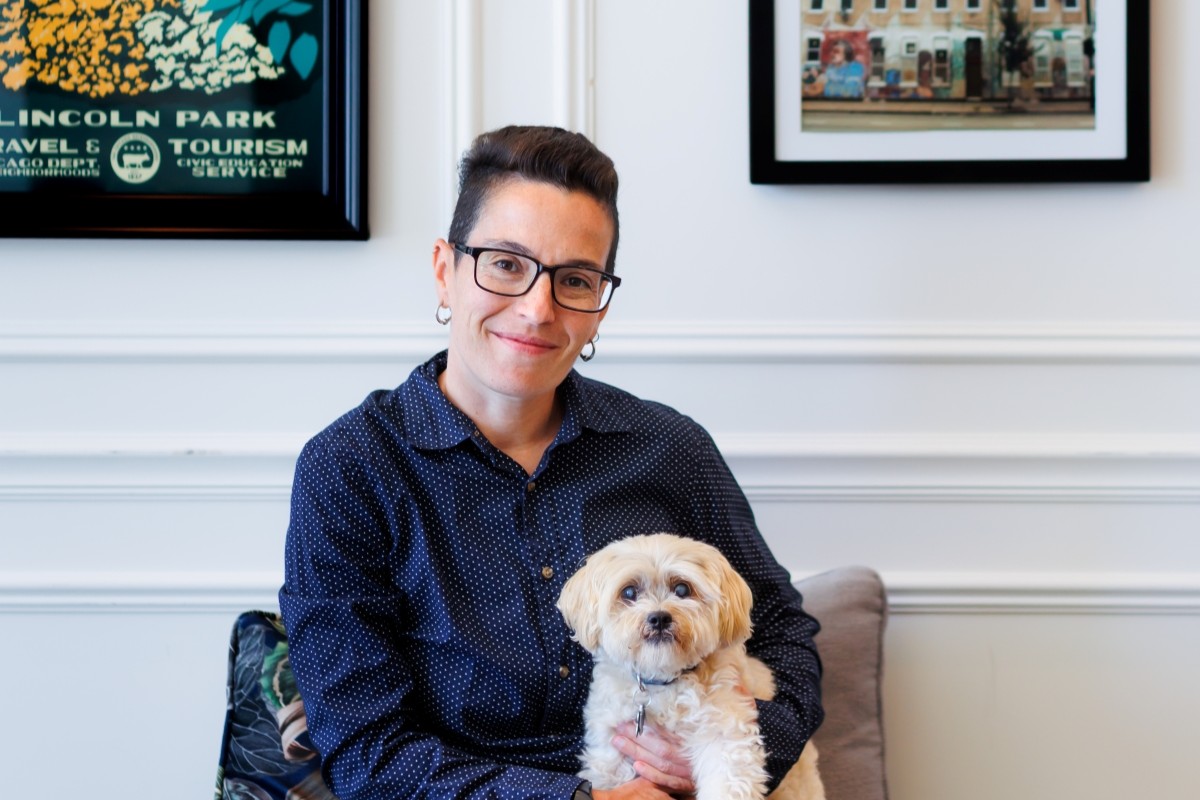Julia London is the New York Times and USA Today bestselling author of more than sixty fiction novels. She is the author of popular historical romances set in Scotland and England, and several contemporary romances, most notably, You Lucky Dog and It Started with a Dog. She is also the author of women’s fiction titles, including Nice Work, Nora November and the Pine River series. Julia is the recipient of the RT Bookclub Award for Best Historical Romance and a six-time finalist for the prestigious RITA award for excellence in romantic fiction. She lives in Austin with a massive pile of unread books, a dog, and people in and out of her house all day long.
Here’s my obnoxious humble brag: In 28 years of writing, I’ve never suffered from writer’s block. I’ve never lacked for idea nuggets that potentially could be turned into something. In fact, they tend to pile up like laundry.
I have, however, suffered from the terrible scourge known as demotivation. It strikes after vacations and holidays. It creeps up in the dead of summer or when in brutal cold when survival is a couch, blankets, and a TV remote. It slaps me after I’ve been insanely busy finishing a manuscript, or making anxiety-producing appearances, or promoting a book online. It wraps its tentacles around my throat and squeezes when it is time to produce a proposal that outlines my next book. And it smothers me with whispered lies when I start writing the next book: You have plenty of time! You don’t need to start this now! Take the day! Heck, wait til Monday to get started! You. Deserve. A. Break.
But writing is my livelihood, and it’s important that I keep pace to meet my obligations. Over many years and many books, the fear of being forced to get a real job and the concomitant horror of needing a wardrobe that is not stretchy, has forced me to learn ways to keep myself moving and motivated. Here are a few tricks I learned:
1. Talk.
Nuggets of ideas are easy. Fully formed ideas are hard. If I’m feeling a little sluggish with molding an idea into an actual book, I find that talking about it sparks my brain into working properly. My author friends and I call it brainstorming: My friend meets me in a coffee shop and listens to me talk about this weird idea I have. While I hash out my thoughts aloud, friend mutters things like, sounds good or that’s interesting while devouring a plate of pancakes. Speaking the idea into existence helps me formulate it. Sometimes, I cringe. Other times, I think, hey, that’s pretty good. And the river starts to flow. Author friends are also useful for what-ifing your idea. What if your character was blue? What if your protagonist spent the whole book standing on his head? What-ifing helps develop a plot and character so I can speed things along.
2. Switch it up.
I write in different genres, and often, that’s all the catalyst I need. If I’ve been writing an angsty women’s fiction with a lot of emotion (hard), I am jazzed if the next book is a fun, flirty rom-com (less hard). Changes in setting, tone and pace spark a desire to write, helps keep me fresh, and presents new writing challenges. Flirty banter is a different skill than deep emotion. Historical novels have a different language cadence than contemporary novels. A new landscape is often the trick to moving forward.
3. Seek inspiration.
I read a lot. Obviously, I read my own words ad nauseam, but I also read for pleasure. I’m not smart enough to understand how my brain works, but reading other people’s work helps spark ideas and the desire to keep writing my own words. It can be as simple as a turn of phrase in a book that sends me down a new or better path in my work. The same inspiration can happen for me with other media, but nothing works quite like a book for me. Words in, words out. It’s called filling the well for a reason—you are creating an internal pool of words and ideas to draw from.
4. Ugh, but yeah, exercise.
This will annoy some people. It annoys me. But exercise truly helps. I know! Not everyone has time, and it’s beastly hot, and gyms are too expensive… And yet, I’m always happy that I made myself do it. There is nothing like a release of endorphins to get the mind working. I have a beagle, and he needs a lot of exercise. In addition to what I do for my body, I walk this goober for an hour every morning. When he gets his walk, he is relaxed the rest of the day. For me, that time without a screen or anyone demanding my attention allows me to process the work I need to do. It’s become such a part of my routine that when I finally sit down to write, I feel like I have already started because my mind is already into the story.
5. Find new scenery.
Get out of the “office.” Some people go to coffee shops, and I do, too. But the best scenery change for me is a writing retreat, always with friends. It’s great to be around other authors to bounce ideas off of, and then write. And then complain about publishing. And eat and drink. And then write some more. I’ve always succeeded in moving the needle of a manuscript with a writing retreat, which is astounding when you consider how much we talk. But my friends and I are on the same team, and we all need to get from point a to point b, and we are each other’s biggest cheerleaders and task minders.
6. Set realistic goals.
Early in my career, when my books were mostly mass market, publishers wanted books fast for voracious readers. I would sign on to ridiculous deadlines that I created (I’m dumb like that). I always bit off more than I could chew and would end up with all-nighters and endless days of never leaving the chair. That is not a healthy way to create anything. Now, thanks to the time-honored tradition of Learning the Hard Way, I set realistic goals for myself. I know how much of a first draft I can realistically write in a day. I know how many weeks it will take me to edit a manuscript. I know how long the preparations for a book release will take me. I no longer stack things on top of the other and think, I’ll do it on the weekend. Because, reader, I ain’t doing it on the weekend. I knew it way back when, but I didn’t believe me. Which brings me to my last tip.
7. Believe yourself.
If you listen, yourself will tell you the truth every time. I can preach this now, but it took me years to understand that I was the driver of this career, and not the publisher, or my agent, or anything my author friends or the market was doing. That if I wanted to make a career of writing, I would have to temper my expectations and learn to live within the confines of me. That meant understanding how I work and the sort of book I write the best. I learned to listen to me and to believe me. And I believe I will write another book, and it will be better than the last, and you will like it…and that I better get on it.

Everything Is Probably Fine by Julia London
Lorna Lott’s promotion at work is just within reach, but then she goes off the rails (there’s a reason her nickname is King Kong) and is mandated to attend a month-long wellness program. If she can’t get her anger issues and turbulent emotions under control, she’ll never get that promotion, which means she won’t be able to buy back her grandmother’s house and reclaim her childhood happiness. With the help of her quirky eight-year-old neighbor and his father, Lorna will learn that past mistakes can’t be altered, but the future is in her hands.
Buy the book now: Bookshop.org | Amazon | Barnes & Noble














Leave A Comment